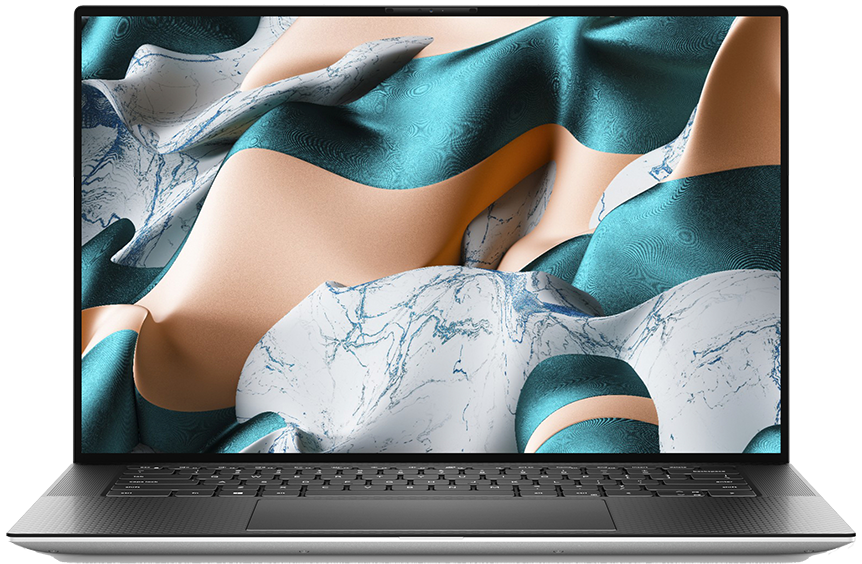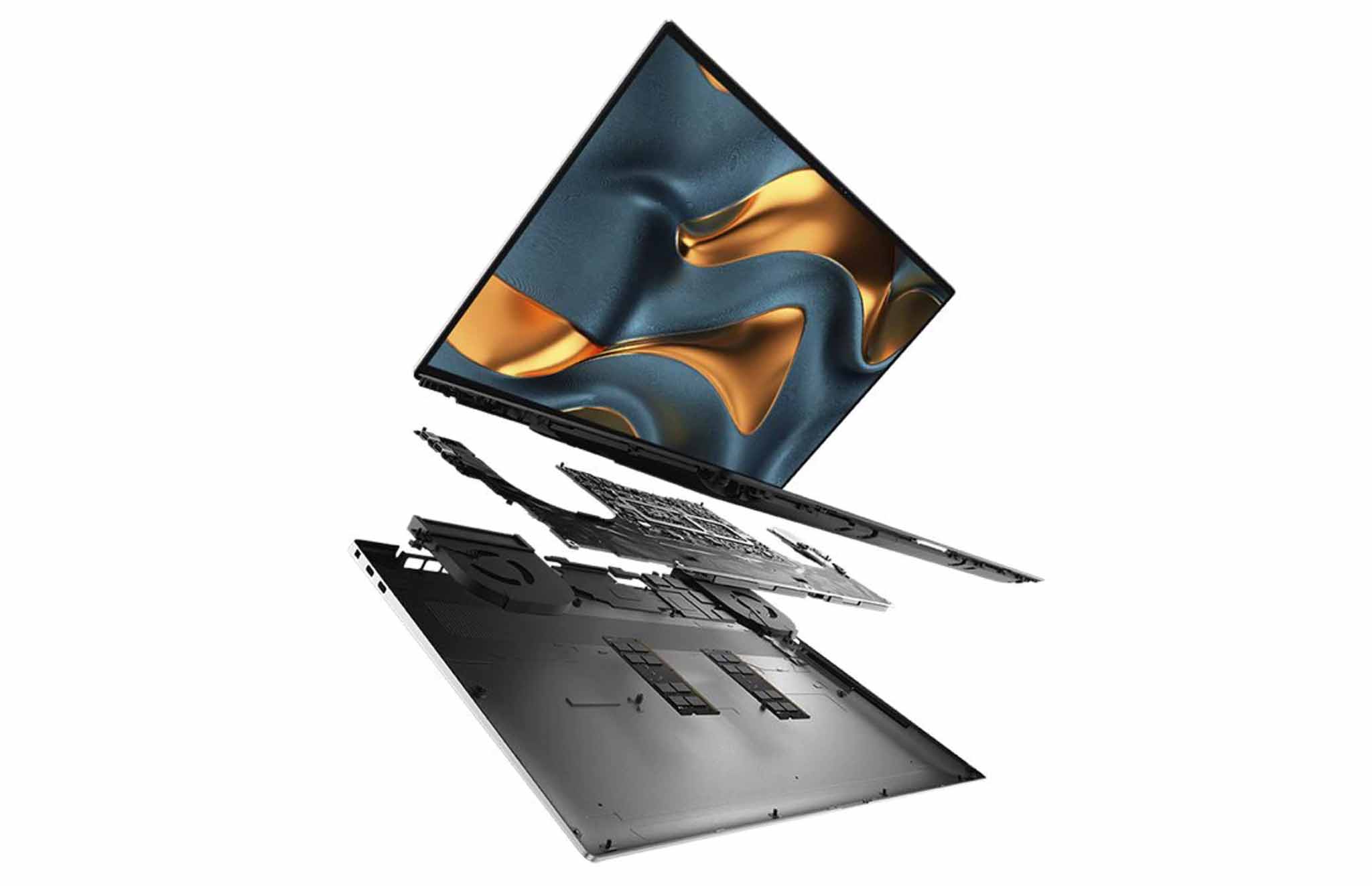15-Inch Powerhouse
Dell XPS 15 (9500)
Pros
- 10th Gen Intel Core CPUs available
- NVIDIA GTX 1650 Ti dedicated GPU
- FHD+ or UHD+ display options
- Wi-Fi 6 and Bluetooth 5
- Premium build quality
Cons
- Significantly more expensive
The XPS 15 brings impressive power, stunning display options, long battery life, and some extra features all wrapped up in a premium chassis that's as thin and light as possible. If you need a top 15-inch Ultrabook, this is it.
Affordable Alternative
Dell Inspiron 15 7000 (7591)
Pros
- Far more affordable
- NVIDIA GTX 1050 GPU available
- Great port selection
- Aluminum chassis
- 9th Gen Intel H-series CPUs
Cons
- Not as powerful
- No 4K or touch display option
The Inspiron 15 7000 (7591) is an affordable alternative to the XPS 15, with a dedicated graphics card (GPU), generous port selection, and slim build. It won't match the XPS 15 in power, display, or aesthetic, but it will save you a lot of money.
Dell's XPS 15 (9500) is an impressive piece of hardware, complete with UHD+ display option, dedicated NVIDIA GTX 1650 Ti GPU, and 10th Gen Intel Core H-series CPUs. It's also quite a bit more expensive than the Inspiron 15 7000 (7591), which is an excellent laptop in its own right for those who don't mind a more basic device. Let's take a look at the specs that make up these two laptops.
Dell XPS 15 vs. Inspiron 15 7000 tech specs
| XPS 15 (9500) | Inspiron 15 7000 (7591) | |
|---|---|---|
| Processor | 10th Gen Intel Core i5-10300H Core i7-10750H Core i7-10875H |
9th Gen Intel Core i5-9300H Intel Core i7-9750H |
| RAM | 8GB, 16GB, 32GB, 64GB DDR4-2933MHz |
8GB, 16GB DDR4-2666MHz |
| Storage | 256GB, 512GB, 1TB, 2TB M.2 PCIe SSD |
256GB, 512GB M.2 PCIe NVMe SSD |
| Display size | 15.6 inches | 15.6 inches |
| Display resolution | 1920x1200 (FHD+) non-touch 3840x2400 (UHD+) touch |
1920x1080 (FHD) non-touch |
| Graphics | Intel UHD Graphics NVIDIA GTX 1650 Ti |
Intel UHD 630 NVIDIA GTX 1050 |
| Ports | Two Thunderbolt 3 USB-C 3.1 SD card reader 3.5mm audio |
Thunderbolt 3 Three USB-A 3.1 HDMI 2.0 3.5mm audio microSD card reader |
| Wireless | Killer Wi-Fi 6 AX1650 Bluetooth 5.0 |
802.11ac Wi-Fi 5 Bluetooth 5.0 |
| Biometrics | Fingerprint reader IR camera (optional) |
Fingerprint reader |
| Battery | 56Wh (No dedicated GPU) 86Wh |
56Wh |
| Dimensions | 13.57 x 9.06 x 0.71 inches (344.72mm x 230.14mm x 18mm) |
14.08 x 9.4 x 0.71-0.78 inches (357.56mm x 238.84mm x 17.95-19.90mm) |
| Weight | From 4.0 pounds (1.83kg) | 4.12 pounds (1.87kg) |
Design and features
The latest XPS 15 has seen a refresh in the style of the XPS 13 9300, with a thinner design, 16:10 display with almost no bezel at all, and webcam with optional IR sensor above the display. You still get a carbon fiber interior and CNC machined aluminum chassis. The XPS 15 is slightly smaller and thinner than the Inspiron 15 7000, though not so much that you'd notice a big difference if they weren't side-by-side.
The Inspiron 15 has an aluminum chassis that extends to the interior, keeping the silver finish throughout. The lack of carbon fiber and the slightly larger chassis make it a bit heavier than the XPS 15, at least to start. Once you add a 4K touch display and a massive 86Wh battery to the XPS 15, it does become heavier.
Both laptops employ a sizable Precision touchpad with plenty of room for Windows 10 gestures. As for the keyboard, both are backlit, and both should be fine for a day of productivity. If you type a lot, testing them both out before a final purchase is a good idea. Keycaps on the XPS 15 have been enlarged for a better typing experience, and flanking the keys on either side are top-firing speakers. Combined with down-firing speakers, you're getting a total of 8W of audio output. If sound is important, the XPS 15 easily beats out the Inspiron. Both laptops have a fingerprint reader built into the power button.
The port selection has changed with the XPS 15 9500 model. Gone is USB-A, instead now with two Thunderbolt 3, USB-C 3.1, SD card reader, and 3.5mm audio jack. The Inspiron 15 has a selection better for legacy accessories; ports include three USB-A, HDMI, Thunderbolt 3, 3.5mm audio, and a microSD card reader. Ultimately, both laptops deliver generous connectivity, and you can add a powerful Thunderbolt 3 docking station for even more ports.
Display
The XPS 15 has seen some changes to its display, including a move to a 16:10 aspect ratio for a boxier look. There are a couple of options for the 9500 model, including standard non-touch 1920x1200 (FHD+) and a 3840x2400 (UHD+) option. The non-touch FHD+ model, which is the most affordable, hits up to 500 nits brightness, manages 100% sRGB color reproduction, and includes Dolby Vision. Its high brightness means you can use it just about anywhere, and it will gobble up the least amount of power.
For those who love or require 4K for work, the UHD+ touch option hits 500 nits brightness and manages 100% AdobeRGB and 94% DCI-P3 color reproduction, making it a reliable choice for photo editing and specialized work. Keep in mind it will weigh more and suck up more battery.
As for the Inspiron 15 7000, there's a relatively basic FHD non-touch display option with an anti-glare finish, IPS panel, and 16:9 aspect ratio. It's all you'll need for standard tasks, and it's a looker in its own right, but it just doesn't match up to either of the display options available with the XPS 15.
Performance and price
For general productivity tasks, the Inspiron 15 has all the hardware you'll need (and a bit more). It's available with up to a 9th Gen Intel Core i7-9750H processor (CPU), 8GB of DDR4 RAM, and a 512GB M.2 PCIe solid-state drive (SSD), as well as a dedicated NVIDIA GTX 1050 GPU with 3GB of VRAM. It's enough for some quality gaming or a bit of extra horsepower for editing. If you're trying to stick to a tight budget, the high-end Inspiron 15 configuration has a lot to offer for the $980 price tag. That's less money than even the introductory XPS 15 model.
For a general productivity machine that's still going to tear through word processing, web browsing, and video streaming, you can spend about $735 and get a 9th Gen Intel Core i5-9300H CPU, 8GB of RAM, 256GB SSD, and integrated Intel UHD 630 graphics.
On the other hand, if you want a thin and light 15-inch device with a performance boost, the XPS 15 has some extra hardware to behold. With up to a 10th Gen Intel Core i7-10875H CPU, 64GB of DDR4 RAM, a 2TB PCIe SSD, and a dedicated NVIDIA GTX 1650 Ti GPU with 4GB of VRAM, it can pretty much handle anything you throw its way, including specialized work. Add in two stellar display choices, and you have one mighty Ultrabook.
A maxed-out XPS 15 is going to hit somewhere around the $3,000 mark, though, so it certainly won't be for everyone. If you're on a budget and still want to get in on the XPS 15, models start at about $1,274.
The XPS 15 is an outstanding laptop if you have the budget
Overall, the XPS 15 is thinner, lighter (at least to start), and of overall higher quality. You're ultimately going to pay more, but there are two superb displays to choose from, and it can become a true desktop killer for professionals thanks to more powerful hardware options.
15-Inch Powerhouse
Dell XPS 15 (9500)
King of Ultrabooks
The refreshed XPS 15 (9500) brings new processors, a faster GPU, and a 16:10 display aspect ratio.
Go with the Inspiron 15 7000 for an affordable Ultrabook
If you don't need the extra power or fancy displays found in the XPS 15, the Inspiron 15 7000 is going to save you a lot of money and still be an excellent laptop. It's built well, it has many of the same features, and a dedicated NVIDIA GTX 1050 GPU and 9th Gen Intel CPUs add some much-appreciated power.
Affordable Alternative
Dell Inspiron 15 7000 (7591)
A classic 15-inch laptop with a great price
It might not be as flashy or have the same display and hardware options as the XPS 15, but the affordable price will no doubt draw in a lot of people.












0 comments:
Post a Comment